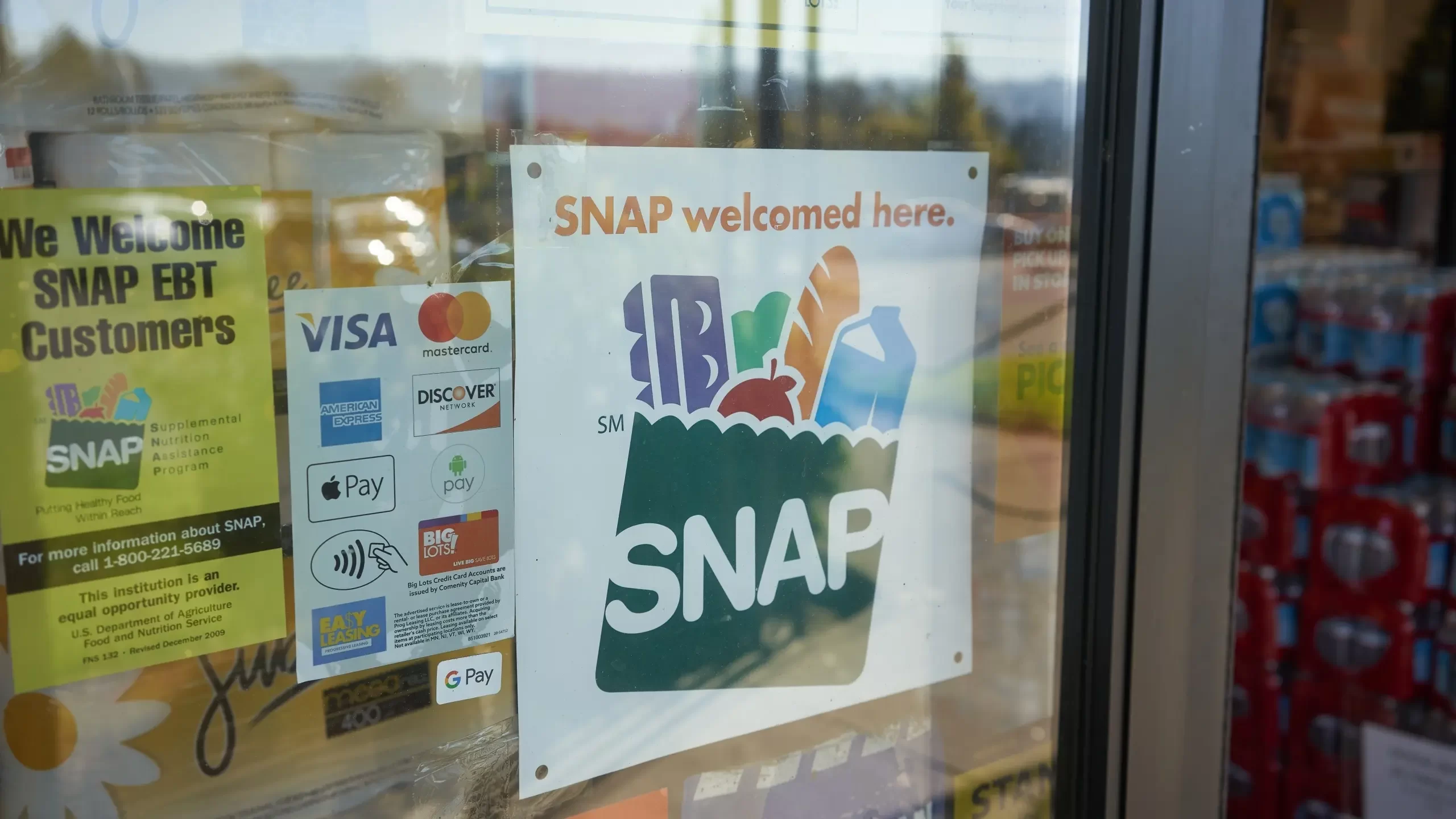The federal budget signed into law earlier this year will cut the share of SNAP’s administrative costs that the federal government pays from 50 percent to 25 percent, starting in late 2026. Based on numbers from the Alabama Department of Human Resources, this will increase the amount Alabama has to pay by around $35 million a year.
According to the most recent data from the U.S. Department of Agriculture, over 735,000 Alabamians are participating in SNAP, and receive on average under $200 per person per month in benefits. One report produced by the USDA in 2023 found almost 40 percent of program beneficiaries in the state were children.
State Senator Arthur Orr, R-Decatur, told APR during a July interview that state legislators “will need to find the money” this upcoming session to compensate for the reduction in federal funding.
While the federal budget bill was still awaiting the Senate’s approval, Alabama Senator Tommy Tuberville, currently the frontrunner in the gubernatorial race, expressed concern that Alabama couldn’t afford the cuts to SNAP being debated. Some of the cuts in the House’s initial bill were scaled back before the budget was signed into law, but the reduced share of administrative costs and an incentive program based around benefit cost sharing remained in the final bill.
Ashley Murray of the Alabama Reflector reported that at a recent public appearance, Tuberville “vowed to reduce SNAP enrollment so that the program will not cost the state when he hopes to be governor.” He cited budgetary effects as a major concern.
“It’s going to cost us $200 million my year of starting in terms of paying for SNAP,” Tuberville said at the event. “That’s not going to happen. We’re going to get that down.”
“Sen. Tuberville believes SNAP should be used temporarily by those who fall on hard times,” Mallory Jaspers, the communications director for Tuberville’s gubernatorial campaign, clarified in an email to APR. “As Governor, he will make sure SNAP is a hand up, not a hand out.” Jaspers did not respond to questions about what data or studies have informed Tuberville’s views about SNAP.
A report from the USDA’s Food and Nutrition Service found that nationwide almost 90 percent of SNAP beneficiaries lived in a household with a child, an elderly individual, or a disabled individual during the 2023 fiscal year.
On Thursday, APR spoke with state Representative Reed Ingram, R-Pike Road, about the pending funding cuts for SNAP and the upcoming legislative session. Ingram also recently pre-filed a bill that would mandate the Alabama Department of Human Resources apply for a waiver allowing the state to exempt various unhealthy foods from the program.
The representative told APR he believes restricting how beneficiaries can spend SNAP benefits will help the state deal with the cuts to federal funding.
“You’re gonna have some attrition [in the program] when you’re cutting out the biggest part, when people can go in and buy four or five cases of Coca-Colas when they buy their groceries and stuff,” Ingram said.
“I would say that 20 percent of that is probably going to be junk food that they were buying before, so if it’s going to be to where we’re going to limit it, I don’t mind cost sharing to make sure people don’t go hungry, by no means,” he continued. “We don’t want anybody going hungry, but it’s got to be a nutritional injection that we put in if we’re going to inject money into that program.”
Ingram also said that Alabama’s ranking as the third-worst state by life expectancy inspired him to pre-file the bill. He added that House Speaker Nathaniel Ledbetter has tasked a committee of doctors and healthcare professionals with suggesting “what it’s going to take for Alabama to get back on their feet and turn this thing around.”
However, LaTrell Wood, a hunger policy advocate with poverty-focused nonprofit Alabama Arise, said restricting what SNAP benefits can be spent on won’t save the state any money.
Instead, it would “increase the amount DHR has to spend, because there are system design costs and outreach costs for state agencies,” Wood told APR. “We can’t afford to get distracted right now. Many members of our delegation in D.C. just voted to send the state a significantly large bill, while completely eliminating funding for SNAP Ed programs that encourage healthy eating, and unjustly policing people because of their income will not save money.”
She suggested that stores might even opt out of accepting SNAP as a result, explaining that this could be an issue “particularly in rural areas that may only have a convenience store.”
Wood also argued that further restrictions on spending SNAP benefits “turns what is a systemic issue into an issue of individual choice.”
“Any policy approach that limits Alabamians’ access to food based on demographic, whether it is somebody’s income, race, or where they live, undermines the realities many of our communities’ members are facing when it comes to accessing affordable healthy options,” she wrote.
Ingram and Orr both told APR they would not support measures like increasing taxes on unhealthy foods, or banning sugary drinks above a certain volume, to help promote public health.


















































